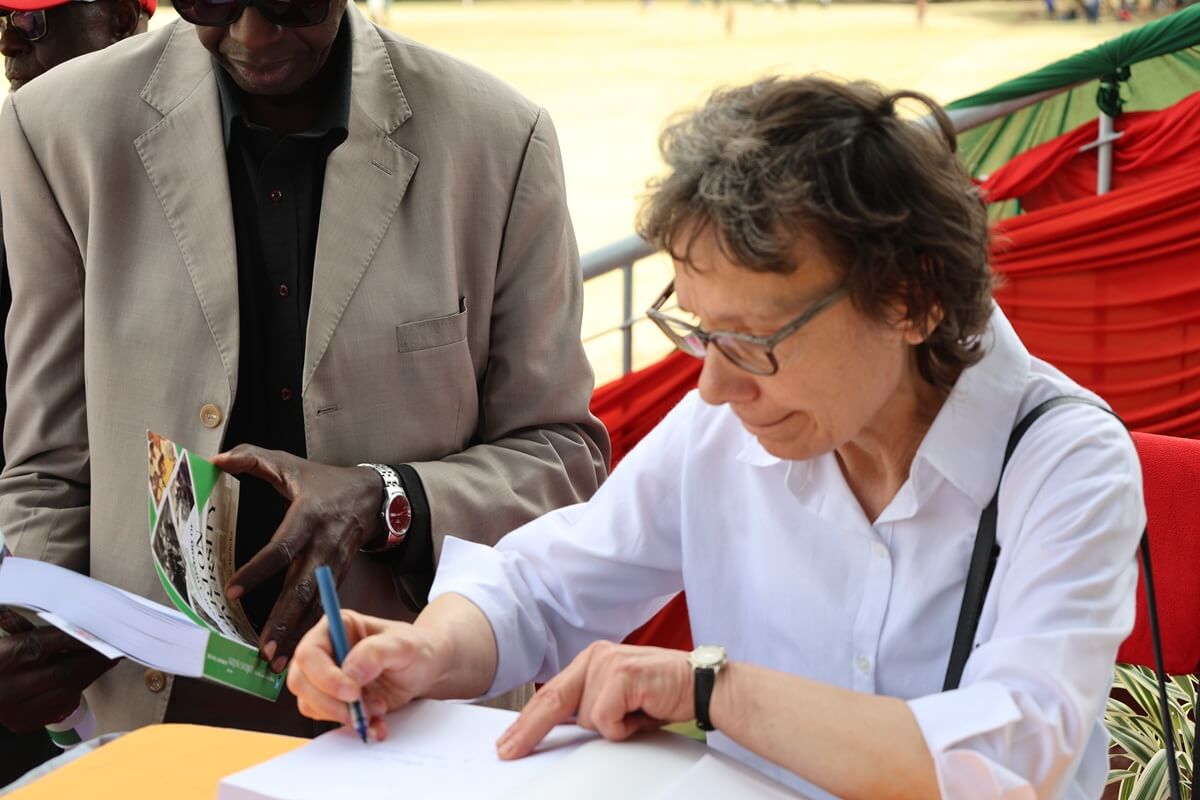Njoro, Kenya
The inaugural three-day AI in Higher Education Summit, held at Egerton University, drew to a close on Thursday with a stirring keynote address by cybersecurity expert Dr. Katherine Getao, and a series of reflections from university leadership, faculty, alumni, and students.
The summit, which ran from 14th to 16th October 2025, was hosted under the theme “Generative AI in Higher Education Teaching, Learning, and Research: Candid Confrontations.”
Dr. Getao used her closing remarks to underscore both the promise and the responsibility inherent in AI adoption across academic and professional settings. She praised AI as a major technological advance, and projected further leaps ahead by 2028, but stressed that those gains must be matched by ethical frameworks and value systems.
“We need to cultivate institutional values as well as personal values that are key in the use of these technologies that emerge,” she said, urging institutions and individuals to align innovation with integrity.

She warned that without intentional ethical adaptation, rapid technological shifts could outpace institutional readiness and human agency. Her message resonated as participants grappled with the tension between embracing AI’s transformational potential and safeguarding against misuse, bias, or erosion of human judgement.
At the summit’s formal closing, Prof. Benard Aduda, the Deputy Vice Chancellor for Academic Research and Extension, expressed gratitude to all attendees for engaging deeply with the difficult questions around AI’s role in higher education. He acknowledged that Egerton University must evolve in response to changing educational needs and economic pressures, and asserted that adaptation is not optional but essential.
Also speaking was Dr. Moses Thiga, Director for ICT at Egerton University, who said he was pleased by the high turnout from both students and staff. He noted that such enthusiasm is particularly significant at a time when universities across Kenya face resource constraints and shifting demands.
The summit was principally sponsored by Egerton University’s leadership, spearheaded by Vice Chancellor Prof. Isaac Kibwage. In earlier sessions, the VC had outlined how the university is already exploring uses of AI in pedagogy, research support, and institutional management.

In addition, Prof. Bockline Bebe represented a coalition of stakeholders who provided support through donations and sponsorship of various event segments. Alumni of Egerton University shared accounts of their professional journeys, particularly how information technology and AI have reshaped systems in workplaces—from improving efficiency to enhancing safety and reliability.
Dr. Wamukuru Kuria, Secretary of the Egerton University Alumni Association and moderator of one of the summit’s flagship sessions, facilitated dialogue among alumni working across the globe—in Canada, the United States, South Africa, and in major tech hubs such as the Silicon Valley and national ICT firms. Their perspectives illuminated how generative AI is influencing fields beyond academia, offering both cautionary tales and success stories.
As the summit concluded, the consensus was clear: AI is no longer a theoretical or distant frontier; it is already transforming higher education in Africa, and institutions like Egerton must lead that transformation responsibly. The challenge ahead will be translating dialogue into policies, practices, and cultural shifts that balance innovation with ethics.
Delegates voted that the AI summit at Egerton University be an annual event, an issue the DVC Academic Research and Extension Prof Aduda assured take to be ratified by the University Management Board.
By Musa Kurian
Communications Officer,
Directorate of Marketing and Resource Mobilization,








